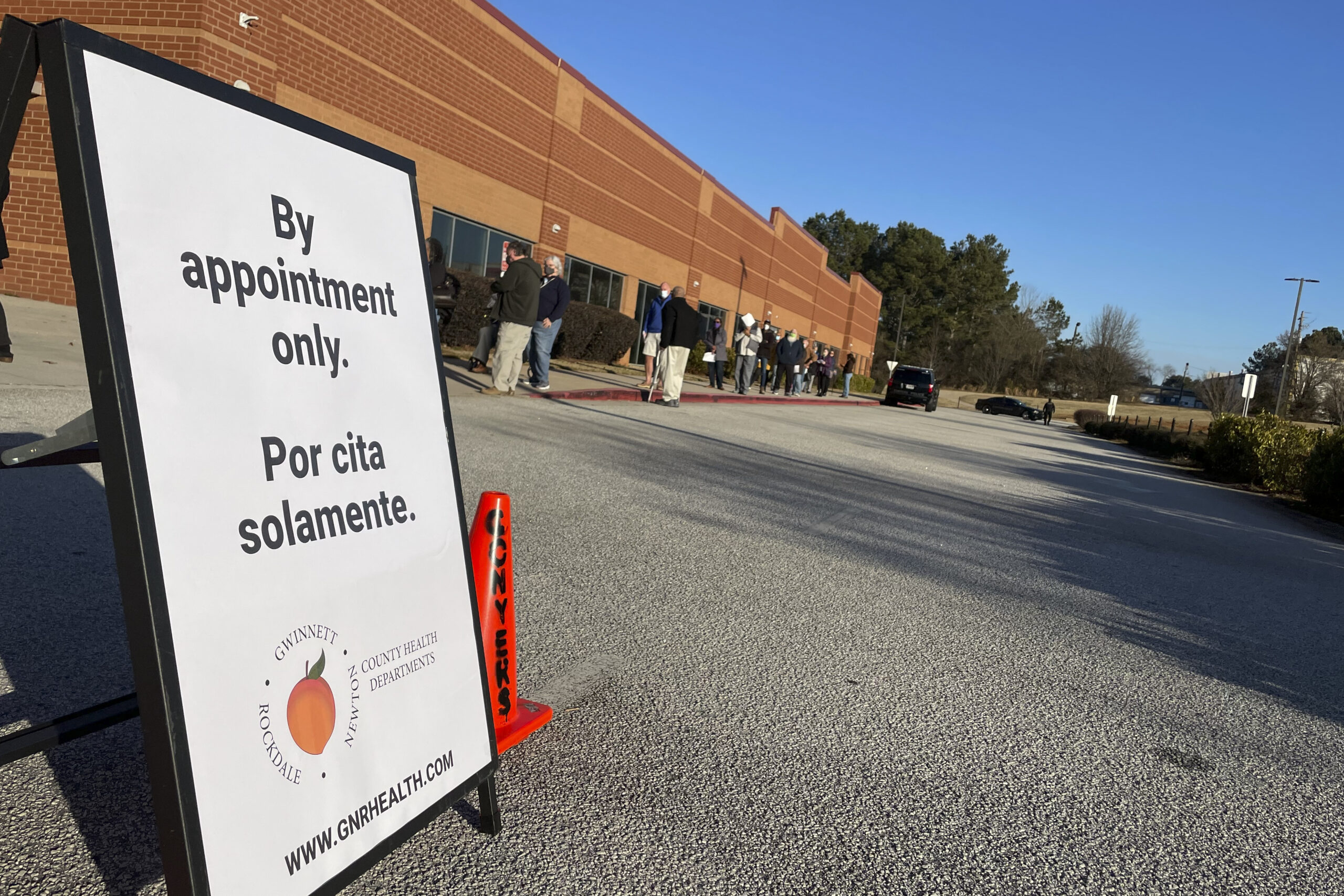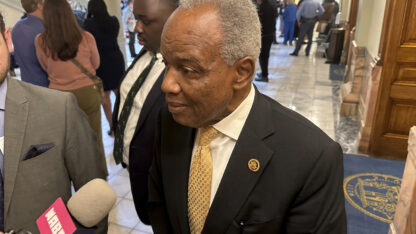Georgia officials warned Tuesday that the state may not see a jump in its weekly allotment of 120,000 coronavirus vaccine doses from the federal government until April, so they will continue to limit eligibility for the inoculations.
The state has not expanded vaccine access to groups such as teachers and people with developmental disabilities. Instead, it’s continuing to focus on its current priority population, which includes people over 65 and first responders, Gov. Brian Kemp said at a news conference. Kemp said that group numbers over 2 million people.
The state had administered just over 713,000 doses as of Tuesday — about 60% of the vaccine it’s been allocated, State Health Commissioner Kathleen Toomey said. The best-performing states have used more than 85% of their vaccine doses.
Still, she and Kemp said the state needed more vaccine.
“The truth is we do not yet have enough vaccine for those most at risk of serious complications or death from this virus,” Kemp said.
President Joe Biden suggested Monday that he hopes the country can soon ramp up to 1.5 million shots dispensed per day. But for now, his team has to work with the bumpy rollout it inherited from the Trump administration.
On a call over the weekend, Biden officials indicated that Georgia may not see a jump in its vaccine allocation until April, Toomey said. The state, in the meantime, is laying the foundation for a broader rollout by authorizing additional providers to administer the vaccines. Toomey said school nurses will be able to provide them.
On Monday, State School Superintendent Richard Woods announced he had formed a working group of teacher groups and 13 superintendents to discuss how to vaccinate teachers and staff once doses become available. The working group is supposed to publish best practices for how school districts can partner with their local public health department to provide vaccinations.
“We are working closely with the Georgia Department of Public Health to ensure teachers are vaccinated as soon as the supply is available,” Woods said in a statement.
The state, meanwhile, continued to report declines in the number of new coronavirus infections and hospitalizations following a record-shattering surge after the holidays.









